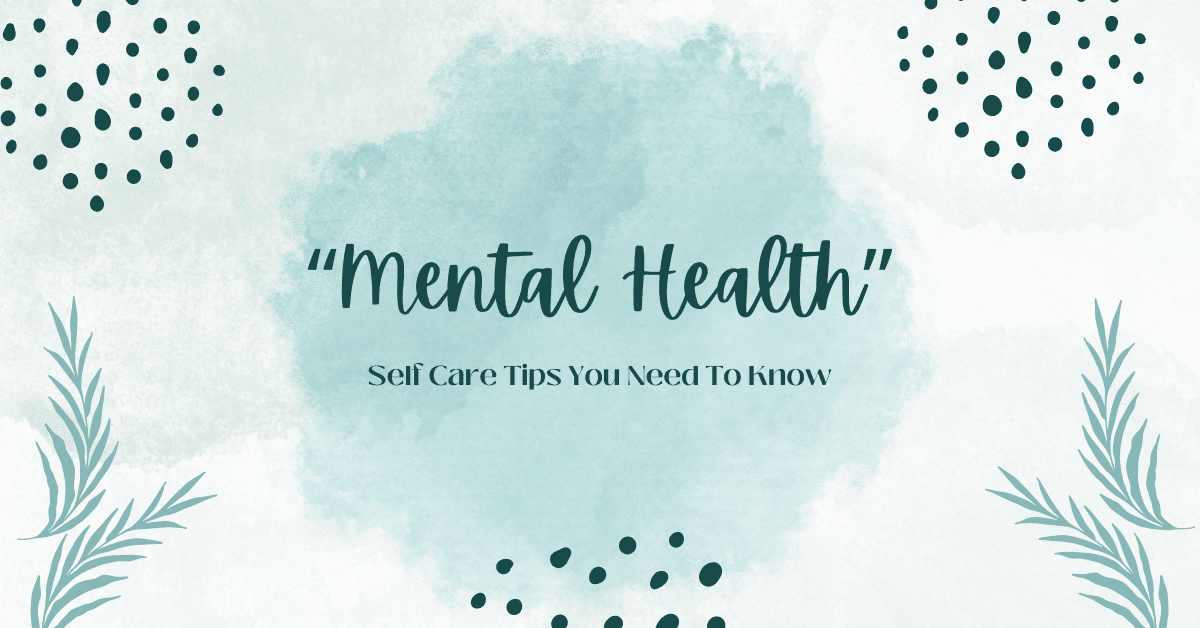Mental Health Awareness: Self-Care Tips You Need to Know

Introduction
In our fast-paced world, mental health is more important than ever. With the constant pressures from work, relationships, and daily responsibilities, it’s easy to feel overwhelmed. Prioritizing mental health isn’t just about preventing illness; it’s about creating a life where you can thrive emotionally, mentally, and socially. In this blog post, we’ll explore practical self-care tips to help you maintain good mental health and improve your overall well-being.
Understanding Mental Health
Mental health affects how we think, feel, and act. It influences our daily lives, relationships, and even our decision-making. Good mental health isn’t just the absence of mental disorders; it’s a state where we can cope with the normal stresses of life, work productively, and contribute to our community. It’s crucial to understand that mental health varies from person to person, and maintaining it requires ongoing effort.
The Importance of Mental Health Awareness
Raising awareness about mental health is vital for several reasons. It helps reduce the stigma surrounding mental health issues, encouraging people to seek help when they need it. Too often, individuals suffer in silence due to fear of judgment or misunderstanding. By promoting mental health awareness, we can create a more supportive environment where everyone feels comfortable discussing their experiences and seeking the care they need.
Self-Care Tips for Mental Health
1. Practice Mindfulness and Meditation
Mindfulness and meditation are excellent tools for managing stress and promoting mental clarity. Mindfulness involves being present in the moment, acknowledging your thoughts and feelings without judgment. Meditation can help you relax and reduce anxiety. Even a few minutes a day can make a significant difference. Try apps like Headspace or Calm to get started if you’re new to these practices.
2. Maintain a Healthy Lifestyle
Your physical health has a direct impact on your mental well-being. Regular exercise, a balanced diet, and sufficient sleep are crucial. Exercise releases endorphins, which improve mood and reduce stress. A nutritious diet fuels your brain, while good sleep helps regulate emotions and reduces anxiety. Remember, it’s about consistency rather than perfection.
3. Set Boundaries and Learn to Say No
Setting boundaries is crucial for protecting your mental health. It’s okay to decline invitations or requests that you find overwhelming. Prioritize your well-being by focusing on activities that bring you joy and peace. Learning to say no isn’t about being selfish; it’s about taking care of yourself so you can be your best self for others.
4. Stay Connected with Loved Ones
Social connections are essential for emotional support. Spending time with friends and family, even if it’s just a phone call or video chat, can provide comfort and reduce feelings of isolation. Don’t hesitate to reach out to others when you’re feeling down; sometimes, a conversation with a loved one can make all the difference.
5. Engage in Activities You Enjoy
Hobbies and leisure activities are great for relieving stress and boosting your mood. Whether it’s painting, hiking, reading, or cooking, engaging in activities you love can provide a sense of accomplishment and joy. Make time for these activities regularly—they’re not just fun, they’re also beneficial for your mental health.
6. Practice Gratitude
Gratitude can transform your perspective and improve your mood. Try keeping a gratitude journal where you note things you’re thankful for each day. It doesn’t have to be anything big; even small things like a sunny day or a good cup of coffee can help shift your focus from negative to positive.
7. Seek Professional Help When Needed
There’s no shame in seeking professional help when you need it. Therapists, counselors, and psychiatrists are trained to help you navigate mental health challenges. Whether you’re dealing with stress, anxiety, depression, or any other issue, professional support can provide valuable tools and strategies to manage your mental health.
8. Limit Screen Time and Social Media Use
Excessive screen time, especially on social media, can negatively affect your mental health. It’s easy to fall into the trap of comparing yourself to others or getting overwhelmed by negative news. Set limits on your screen time and be mindful of the content you consume. Take regular breaks and engage in activities that don’t involve screens.
9. Practice Self-Compassion
Being kind to yourself is essential. We can be our own worst critics, which can lead to negative self-talk and lower self-esteem. Practice self-compassion by treating yourself with the same kindness and understanding you’d offer a friend. Acknowledge your strengths, and don’t be too hard on yourself when things go wrong.
10. Develop a Routine
Having a daily routine can bring structure and stability to your life. It helps you manage your time better and reduces feelings of chaos. Your routine doesn’t have to be rigid—just having a general plan for your day can help you prioritize self-care and make sure you’re taking time for rest and relaxation.
Conclusion
Taking care of your mental health is an ongoing process that requires attention and effort. By incorporating these self-care tips into your daily routine, you can enhance your mental well-being and build resilience against life’s challenges. Remember, it’s okay to seek help and make your mental health a priority. Start small, be consistent, and don’t be afraid to try different strategies to find what works best for you.
Your mental health is just as important as your physical health. Prioritizing it can lead to a happier, healthier life. So, take the time to care for your mind as much as you care for your body, and don’t hesitate to reach out for support when needed. Here’s to a healthier, more mindful you!
One thought on “Mental Health Awareness: Self-Care Tips You Need to Know”